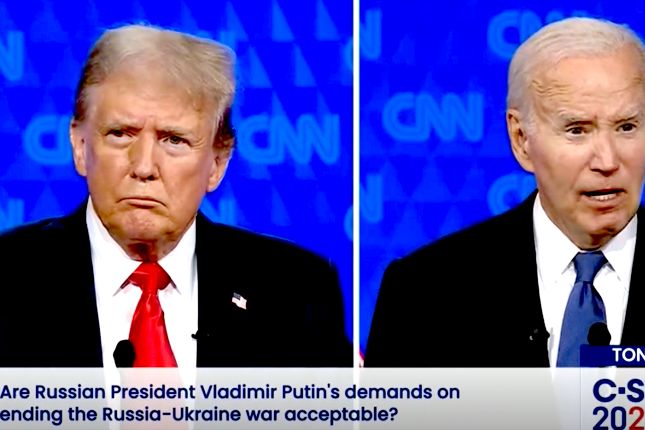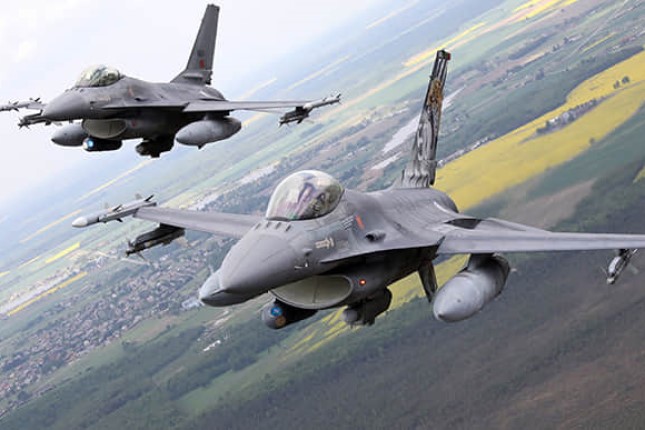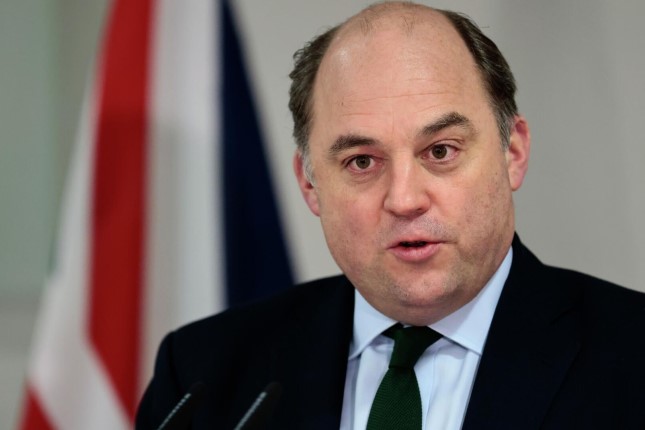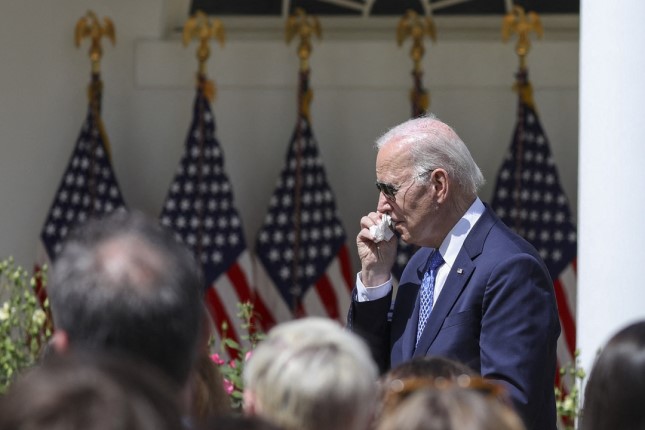US President Joe Biden went on a visit to the Middle East pursuing several main objectives, but none of them was fully achieved. Biden failed to compel Saudi Arabia to boost production in earnest or initiate closer cooperation with Israel against Iran. The head of the US administration did not manage to get the Middle Eastern monarchies to support anti-Russian sanctions, nor was he able to convincingly demonstrate his intention to return to the region to counter the growing influence of China and Russia.
The visit to Saudi Arabia was the most important and promising part of the trip, which is why it received so much attention. The US Council on Foreign Relations wrote in a special report that "the US-Saudi strategic partnership has frayed in recent years." The United States has grown frustrated with Saudi Arabia's human rights record and reluctance to stabilise the oil market, while Riyadh has concluded that Washington is no longer willing to guarantee the kingdom's security, analysts said.
Biden, who has always put human rights at the centre of his foreign policy, had to put the lid on his own views. When the meeting with Saudi Crown Prince Mohammed bin Salman, the de facto ruler of the kingdom, the American president ostentatiously welcomed the heir to the throne, whom he had previously accused of the murder of journalist Jamal Khashoggi calling him a world pariah.
Biden refused hugs and handshakes with the prince under the pretext of anti-covid restrictions, which, incidentally, he ignored when hugging the Israeli prime minister. However, even the fist bumps, which were supposed to emphasise the distance between host and guest, drew a barrage of criticism.
"One fist bump is worth a thousand words," House of Representatives member Adam Schiff (represents California), chairman of the influential House Intelligence Committee, and Biden's long-time Democratic ally, commented scathingly on the meeting. It was a stark reminder of just how much influence oil-rich autocrats have over US foreign policy, he added.
Biden brought up the issue of the journalist's murder when meeting with the Saudi prince, which only spurred criticism. In response, Mohammed bin Salman reminded the US president of Abu Ghraib prison in Iraq, where the US military tortured prisoners.
It will now take Joe Biden weeks, months, and years to figure out whether it was all worth the reputational nightmare the president and his team went through.
Negotiations with Arab monarchies to boost oil production
Perhaps things would not have been so bad if Biden had managed to secure concrete agreements with Saudi Arabia and other oil-producing countries in the region. But that did not happen. Yes, at the end of the meeting, the United States and Saudi Arabia signed nearly two dozen agreements on cooperation in IT, space, healthcare and, of course, energy, but the amount of investment under these agreements was never made public. It is probably much smaller than the USD 40 billion that Trump attracted from Saudi Arabia in 2017, when, among other things, he joined in a sword dance with Saudi nobles, and generally seemed to have a great time.
One of Biden's main objectives in visiting the Middle East was negotiating with Saudi Arabia to increase oil production. By doing so, the US is trying to reduce fuel inflation and, at the same time, put pressure on Russia, which now, despite the restrictions, receives substantial additional revenues from hydrocarbon exports.

Saudi Arabia did not say "no" to the US president, promising to help stabilise the energy market. Yet Riyadh did not guarantee to supply any additional significant volumes to the market either. The volume in question was about three million barrels per day, and even then no sooner than in five years. Shorter term, the US "welcomed the increase in oil production 50% above what was planned for July and August."
Considering that Saudi Arabia produced about 10.8 million barrels in July and will be able to provide a little over 11 million barrels under the new OPEC quota in August, the 50% increase in production only makes up an additional 80,000-85,000 barrels per day. Moreover, if the goal is to replace Russian volumes, which are more than 10.7 million barrels per day, Biden’s oil agreements can be considered a failure.
Just an extra 1.5 million to 2 million barrels per day can affect fuel prices, and hence inflation, which is so worrying to American voters. For now, oil prices are rising, while the Democrats' chances in the November midterm elections, on the contrary, are rapidly declining. So are the chances of the US president to stay up to the end of this term. The US media say the Republicans will not hesitate to launch impeachment proceedings should they get a majority in both houses of Congress. Some Democrats will vote for it too.
Confirmation of the US presence in the region
One of the crucial goals of Joe Biden's visit to the Middle East was the desire to strengthen the US presence in the region. The US president even attended a meeting of the Gulf Cooperation Council. The council brings together Bahrain, Qatar, Kuwait, Oman, Saudi Arabia, and the United Arab Emirates − key regional countries that the US administration has defiantly ignored for nearly two years of Biden's presidency. This neglect has created a power vacuum that China and the United States have rushed to fill in. The US president's foreign policy team began to lobby for an increased Washington presence in the Middle East.
At the same time, it is essential to understand that alternative non-Western centres of power seem attractive to the Middle Eastern monarchies as neither China nor Russia, unlike the US, burden their partners with arguments about democracy and human rights but focus on mutually beneficial cooperation. For example, in 2020, bilateral trade between the PRC and Saudi Arabia was estimated at USD 65.2 billion. While the Arab monarchy's trade with the US does not even reach USD 40 billion, to which Biden's inappropriately insulting remarks about the Saudi Crown Prince made a contribution.
However, it is not so much the emotional element as the pragmatic interests now playing against Biden's intention to restore the once-close ties with the Middle Eastern monarchies. They have already got a taste for maneuvering between the influential players. US journalists even write that they will now use the deepening ties with China and Russia to pressure the US and bargain for new preferences. Biden's tour of the region has only confirmed this observation.
Coordination with Middle Eastern allies on Iran
A more significant US presence in the Middle East is necessary, among other things, to consolidate the region's countries against Iran's growing influence. It is surprising that a country that has been under severe sanctions for so many years manages to cause the US and their allies so much headache.
Bringing the Gulf monarchies closer to Israel is essential for containing Iran. One of the stages in such a process would be the inclusion of Israel in the overall Middle Eastern security contour. Once again, the Arab country has not turned down the US president but still has taken no significant steps apart from opening Saudi airspace to Israeli commercial aviation. Biden has not succeeded in convincing the Gulf monarchies to integrate Israel into the missile defence system. Rapprochement with Israel in the military sector or at least establishing diplomatic relations with Israel is out of the question for many Arab countries.
These are the Gulf monarchies that the United States needs now, not the other way round. This background has dramatically affected the outcome of Biden's visit. In the sanctions' confrontation with Russia, the US president has failed to win the support of the Arab states. They are now better positioned and justified to pursue their national interests rather than play in favour of extra-regional powers. Changing circumstances require a reassessment of attitudes in foreign relations.
For example, although the UAE has agreed to be consulting with the US on sanctions against Moscow, the country is unlikely to voluntarily give up its favourable position as the leading financial centre for Russian assets. The Emirates will remain neutral in the financial and economic wars against Moscow to the very last while trying not to quarrel with the West.
A case in point are two news pieces: on the one hand, the UAE, according to the head of state, is working hard to build a "solid bridge" in relations with the United States; on the other, it is negotiating with Russia to allow Russian Mir* cards for payments in the UAE.
Joe Biden's visit to the Middle East was doomed to failure from its very start. The objectives were too contradictory. It was impossible to meet them all together: establish relations with the Gulf monarchies, which have different interests, reconcile them with Israel, persuade them to increase oil production, and on top of all this force them to refuse Russian capital. It would have required extraordinary diplomatic skill and incredibly lucrative offers. Biden had neither of these.
*Russian payment system
































